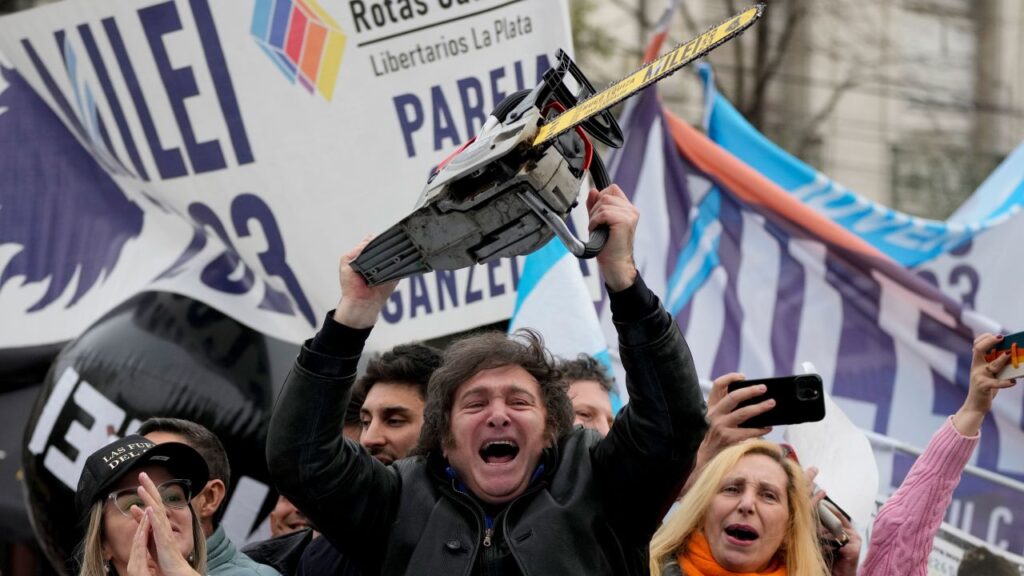The Turbulent Legacy of Javier Milei’s Presidency
Javier Milei, an economist turned political firebrand, ascended to the presidency of Argentina amidst a fervor of anticipation and skepticism. His rise to power was marked by an electrifying promise of change, a beacon for those seeking an alternative to the traditional political landscape. However, what followed was a presidency that could be described as a whirlwind, a short-lived episode that left a lasting imprint on the nation’s political consciousness.
Milei’s journey to the presidency was unorthodox, to say the least. He emerged from the academic sphere, known for his controversial and radical economic theories that resonated deeply with disillusioned sections of the Argentine populace. His disdain for established political parties and his unapologetic advocacy for free-market principles struck a chord with a segment of society fatigued by decades of economic turbulence.
The initial days of his presidency were marked by both euphoria and apprehension. Supporters hailed his ascension as a long-awaited turning point, a departure from conventional policies that had failed to resuscitate Argentina’s faltering economy. Yet, detractors voiced concerns about the untested nature of his economic proposals and the potential consequences of drastic, rapid-fire reforms.
Milei’s governance style was characterized by bold, swift actions. He wasted no time in implementing his vision, swiftly enacting a series of economic reforms aimed at liberalizing markets, slashing government spending, and fostering a business-friendly environment. His policies aimed at deregulation and privatization were aimed at jumpstarting the economy and attracting foreign investment.
However, the honeymoon phase was short-lived. Milei’s ambitious reforms encountered fierce opposition from various quarters. Critics argued that the rapid pace of change risked exacerbating societal inequalities and neglecting the most vulnerable segments of society. Mass protests erupted across the country, with labor unions, grassroots organizations, and citizens voicing their discontent and fears about the potential consequences of these reforms.
Moreover, the economic shockwaves caused by the abrupt policy shifts led to short-term disruptions. Inflation soared, prices of essential goods skyrocketed, and social unrest simmered on the streets. International markets reacted with a mix of curiosity and concern, uncertain about the long-term implications of Milei’s unorthodox economic agenda.
Facing mounting pressure from both within and outside his administration, Milei found himself in a precarious position. The initial wave of support began to wane as the complexities of governing a nation in crisis became evident. The optimism that had accompanied his inauguration gave way to a growing sense of uncertainty and disillusionment.
As opposition mounted and the challenges of governance persisted, Milei’s presidency came to an abrupt end. Faced with widespread discontent, a fractured political landscape, and mounting socio-economic turmoil, he announced his resignation, acknowledging the immense difficulties in enacting his ambitious agenda within the existing political framework.
Javier Milei‘s presidency will be remembered as a brief yet intense chapter in Argentina’s political history. It served as a stark reminder of the complexities inherent in steering a nation through turbulent times and the challenges of translating radical ideologies into viable governance strategies. While his tenure was marked by fervor and controversy, it also highlighted the enduring need for balance between bold reform and societal stability in the pursuit of sustainable progress.

